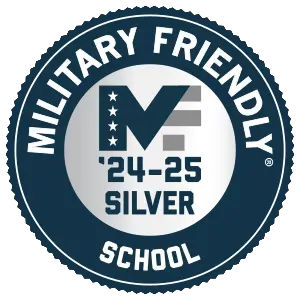How to Become a Practical Nurse

It is first important for those who wish to become a practical nurse to understand what type of work this professional does and the necessary education needed to achieve proper licensing. The good news is this is a field that’s in demand in many areas due to the type of work these professionals do. For those who wish to work as a practical nurse, you should know a few things.
What Is a Practical Nurse?
A licensed practical nurse, or LPN, is a position that allows a person to work in a number of different healthcare settings providing nursing care to individuals. An example of nursing tasks you may perform include:
- Providing individual patient care and contributing to the patient plan of care
- Helping to maintain patient records
- Documenting patient information in a clear, concise, and timely manner
- Initiate and maintain IVs and patient medications as prescribed by a medical provider
- Assisting with procedures and tests
- Working with Registered Nurses or doctors
- Communicating patient care plans with others
This type of role is important in hospitals, long-term care settings, and other healthcare facilities. The LPN role is relied upon by doctors and other healthcare professionals to ensure patients receive the type and level of care they need.
So, How Do You Become a Practical Nurse?
LPNs are required to attend and successfully pass a certified LPN program which will prepare you to sit for the National Council Licensure Examination (NCLEX-PN). Proper education and training is important to successfully pass the licensure exam.
Though course paths may differ, students will need to spend time learning in a classroom as well as in the field. This educational path often takes one year to complete when students attend it full time.
In each quarter of the program, students typically learn theory, and work in a skilled nursing lab and clinical settings to gain hands-on training and skills required to practice as an LPN. Sometimes, students also work in a simulation lab, which provides an opportunity to learn the craft of providing care in a controlled environment. This opportunity is often critical as it helps students gain the insight they need into practical skill development. After this, students often spend time gaining clinical experience, which provides them with real-world opportunities to learn how to provide care that’s still supervised.
The learning process can be extensive, but it provides those who wish to work in nursing with a lot of insight and skill. It also helps them to meet the challenges in today’s healthcare industry.
Educational Requirements
The educational requirements to become an LPN typically include completing a practical nursing certificate program from an accredited provider. These programs are shorter than more extensive degrees but still include an excellent amount of education and support for students.
Students will likely take a wide range of courses as a part of this certificate program. That includes courses in pharmacology, biology, and nursing itself. However, as noted, a large part of the educational process focuses on clinical experience, which allows a student to gain hands-on skills they will use in their careers.
Testing Requirements
After completing and earning the certificate from an accredited program, students complete their necessary licensing exam. The NCLEX-PN exam is necessary for nearly all states. It allows a person to qualify for their license and start working in the field.
What Skills Does an LNP Need?
A practical nurse needs a lot of skills to do their job daily. Often, their job entails working closely with Registered Nurses, doctors, patients, and others to complete the day’s tasks of caring for the individual. Some skills are core to this. For example, good communication skills are critical to ensuring each person receives the proper care they need. It is also important to have a good bedside manner since most people in this position spend their time working one-on-one with patients providing care. They also need to ease the mind of patients and provide them with answers to questions.
In addition to this, those working in this field need to be dependable and have good organizational skills. They also need to be able to keep up with the fast pace of this type of work – those who get frazzled or need more time to make decisions may find it more complex to work as an LPN.
How We Can Help You
If you wish to become a practical nurse, Ohio Business College offers the solutions you need. Our 12-month, full-time Practical Nursing program allows individuals to gain access to some of the best skill training, simulation methods, and clinical experiences to do well in the field for years to come. Learn more about our program and how you can start on the path to working as a practical nurse today.

